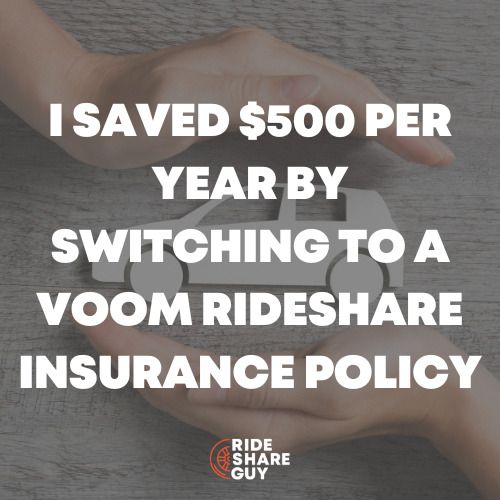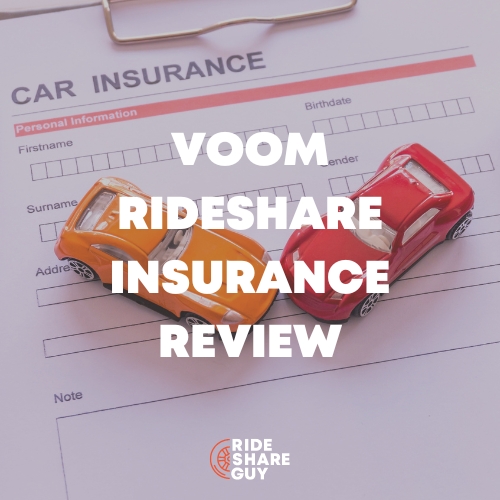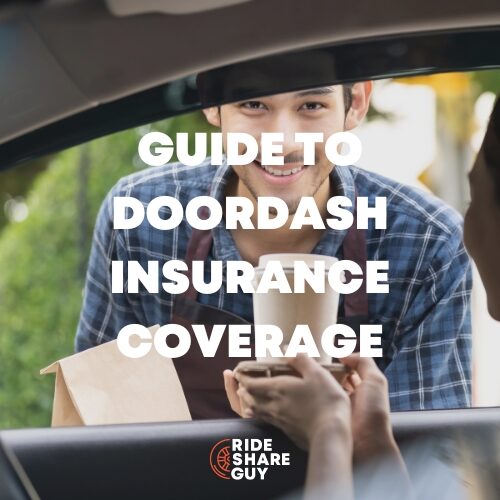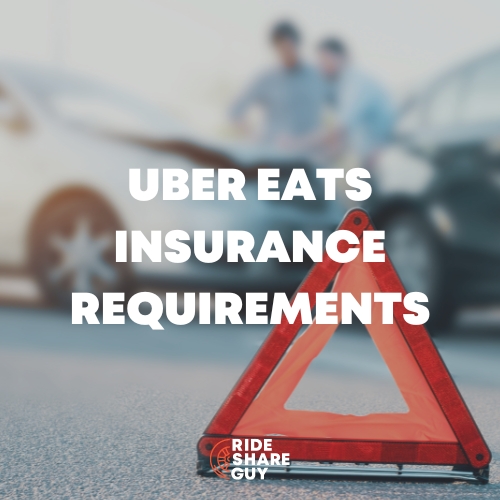Uber drivers have many business expenses, including Uber insurance. You likely already have car insurance because it’s the law if you drive; however, there are unique Uber insurance requirements when you’re a rideshare driver.
Why Uber Requires Insurance
All Uber drivers need Uber insurance. You might think your standard auto insurance policy is enough, but most policies don’t cover the commercial use of a vehicle on a personal policy.
In other words, your auto insurance company could deny the claim if you were in an accident while driving an Uber rider to their destination. They could also drop you off as a client if they find out you are driving for a rideshare app.
Uber Insurance provides insurance for its drivers but only in certain situations. First, you must be actively using the Uber app, and even then, you should understand Uber has certain gaps in coverage.
Insurance ensures you and your riders are financially protected in an accident or other tragedy.
Related:
The Basics of Uber Insurance
Uber insurance only protects Uber drivers in specific situations.
In other words, if you are an Uber driver, you shouldn’t rely only on Uber insurance as it only covers you when you’re actively working.
Requirements
To get Uber insurance, you’ll need coverage from Uber (which is automatic) and personal coverage with a rideshare endorsement.
Most insurance companies don’t offer standalone rideshare car insurance. Instead, they offer an add-on or endorsement to your personal auto policy. So you won’t have a rideshare car insurance policy with one insurance company and your personal auto insurance with another; they go together.
However, rideshare insurance endorsements can fill in the gaps when Uber insurance doesn’t cover the damages.
Types of Insurance
As an Uber driver, you’ll have two types of car insurance – Uber driver insurance and commercial insurance. Your commercial insurance may be an endorsement on your personal policy; it depends on your insurance company.
Uber Driver Insurance
Uber driver insurance covers Uber drivers and their passengers when they’re actively using the Uber app. You don’t pay for this insurance like you would your personal insurance policy, but it also doesn’t cover everything.
You’re only covered when active on the app and/or driving passengers. Depending on the circumstances, it might cover the people or property you damage if you’re at fault. It may also cover any damages caused to you, your passengers, or your car if you’re not at fault but the responsible party doesn’t have insurance.
Commercial Insurance
Commercial insurance is insurance to use your vehicle for business purposes. It’s different from a rideshare endorsement that adds to your personal policy. For example, it protects you only when you’re working, while your personal policy covers you when driving but not for work.
The cost of commercial insurance can be higher than personal car insurance, but you might be able to bundle it with your personal car insurance to get a better deal.
Commercial insurance policies, like personal auto policies, cover things like property damage and bodily injury liability coverage; medical payments; uninsured motorists; comprehensive and collision insurance.
How to Buy
When buying rideshare insurance, make sure it’s clear that you drive for Uber. Your insurance agent will determine what coverage Uber offers and if your personal coverage with a rideshare endorsement is enough to fill in the gaps.
If they don’t offer rideshare insurance, or it’s not enough coverage, ask for a quote on commercial auto insurance and compare your options.
Liability vs. Collision/Comprehensive Insurance
When considering Uber insurance, you should know the differences in liability vs. collision/comprehensive insurance.
Liability insurance covers the liabilities you cause to other people or property. For example, if you ran a red light and crashed into another car while driving an Uber passenger, your Uber liability insurance would cover the cost of damages to the other passengers and the car.
There’s no deductible for Uber liability insurance, and they provide coverage of up to $1,000,000 for third-party liability.
Collision/comprehensive insurance with Uber insurance is contingent upon you having personal auto insurance with comprehensive/collision insurance to cover you when you’re not working. You’re also subject to a $2,500 deductible before Uber insurance covers the cost of damages to you, your passengers, or your car.
How It Works
Uber insurance protects Uber drivers, passengers, and any third parties involved in the accident if the Uber driver is at fault.
But it’s not the only insurance policy you should have.
Uber’s insurance is usually from leading insurance providers, such as Allstate, Farmers, and Liberty Mutual, who have strict requirements depending on the situation.
Uber App Is Off
If the Uber app is off or you are not online, Uber insurance doesn’t apply, and your personal or commercial insurance must cover any incidents. So any time you aren’t ‘on the Uber clock,’ your personal insurance must cover any issues.
Uber App Is On
If the Uber app is on, it depends on the situation’s specifics to determine if and how much the Uber insurance will cover.
Waiting for Requests
When you have the Uber app on and you’re actively waiting for a rider, Uber insurance may cover an accident you cause; however, they only cover damages you cause to third parties, either people or property. The coverage doesn’t protect you or your car.
In this phase, Uber insurance would pay up to the following limits:
- Up to $50,000 per person for bodily injury per person
- Up to $100,000 per person for bodily injury per accident
- Up to $25,000 in property damage per accident
Accepted a Request
If you’ve accepted a request and are on your way to pick up the passenger, you’ll have the highest coverage. This is when you’re officially ‘on the clock,’ and Uber insurance protects you.
In this phase, you’re subject to the following limits:
- Up to $1,000,000 third-party liability coverage
- Underinsured/Uninsured motorist bodily injury
- Comprehensive and collision insurance IF you have personal auto coverage to protect you if you aren’t using the Uber app
There are a few things to consider. First, the coverage for you and your riders only occurs if you aren’t responsible for the accident and the person responsible doesn’t have any or enough coverage to cover your damages.
Driving a Passenger
When you pick up a passenger, you’re still active on the clock and have the same coverage as above. Your passenger is also covered under the same insurance for bodily injury.
Dropping Off a Passenger
After dropping off a passenger, your Uber insurance limits go back to the waiting-for-requests phase if you’ve kept the Uber app on and active. If you’re done for the day, the Uber insurance is no longer effective, and if you keep it on, the limits are lower and don’t cover your car or yourself.
Deliveries
If you deliver for Uber, the coverage is the same. If you’re not ‘on the clock,’ your personal insurance must cover you. But, if you’re active on the app and waiting for a request, you’ll have third-party liability coverage in the same amounts as if you were waiting for a passenger as an Uber driver. Likewise, if you’re actively delivering or en route to pick it up, you’ll have the same Uber insurance as if you were driving to or transporting passengers.
If You’re In an Accident
If you’re in a car accident, always ensure everyone is safe first. If there is an emergency, first call 911 and get everyone to safety.
Once you know everyone is safe, contact Uber support by going into the app and clicking Help, Trip Issues, Adjustments, and I was in an accident.
Like any accident, you’ll need a police report showing the crash’s details so the insurance companies can determine who is responsible for payment.
For example, if you were on your way to pick up a passenger and another car ran a red light and hit you, their insurance is responsible for the damages to you and your car. Your Uber insurance wouldn’t be affected in this situation unless the responsible driver didn’t have any or enough liability insurance.
Here’s another example.
You were driving with a passenger in the car and ran a red light, hitting another car. In this case, you’re at fault, but because you were ‘on the clock,’ your Uber insurance will cover the damages. You won’t pay anything for the bodily injury to you or your passenger; however, you must prove you have collision/comprehensive insurance on your personal auto policy and then will owe $2,500 toward the damages on your car before the Uber insurance pays anything.
Uber Insurance Tips and Tricks
Before driving for Uber, ensure you understand how the insurance works and what to look for to ensure you’re fully covered.
Read the Fine Print
Always read the fine print on your insurance policies. This includes Uber-provided insurance and your rideshare policy. Whether you have a rideshare endorsement or must purchase a commercial insurance policy, ensure you know what it does and doesn’t cover so you’re prepared.
Consult with Your Fellow Drivers
There are millions of Uber drivers. Try to connect with local drivers and see what they do for insurance. While Uber protects you (somewhat) when you’re actively driving a passenger, the coverage while you’re on the app but not with a passenger or on your way to one is limited. Other Uber drivers may have connections and be able to point you in the direction of the best insurance.
Shop Around
It’s always best to shop around for the best insurance. Compare rates on different policies, including rideshare endorsements and commercial policies. Don’t assume one is better or cheaper than the other. When comparing costs, look at the worst-case scenario, such as you caused a serious car accident, to see the bottom line.
Budget Insurance Costs
Your insurance costs are a cost of doing business. Know your budget and keep the number in mind as you choose your rideshare passengers. Your insurance costs decrease how much you make driving for Uber and may drive your decisions on which routes to accept.
Frequently Asked Questions
Uber insurance and a personal policy are both necessary to drive for Uber. Never take a chance and not have personal auto insurance, as it’s the law when driving and could leave you without financial protection in an accident.
Does Personal Motor Insurance Cover Ridesharing if You Are an Uber Driver?
Most personal insurance policies don’t cover rideshare services because they are a form of doing business. So you’d need either a commercial policy or a rideshare endorsement on your policy.
Will Uber Affect My Current Car Insurance?
Working as an Uber driver may increase your insurance rates because you become a liability. Insurance companies base insurance rates on the risk of you having a claim, and the more time you spend on the road, the higher your risk of having a claim.
Does Uber Provide Health Insurance for Uber Drivers?
Because you are an independent contractor with Uber, they don’t provide health insurance. Instead, they recommend that drivers look at the Healthcare Marketplace for their health insurance needs.
What Should I Do if My State Does Not Have Rideshare Insurance?
If your state doesn’t have rideshare insurance, you’ll need a commercial insurance policy. The rates might be comparable, so don’t let it scare you. But you must have coverage that will protect you while driving for Uber.
The Bottom Line
Planning for the right type of insurance is essential, not to mention helpful when calculating your income and expenses.
Don’t take a chance and not have proper coverage if you’re an Uber driver.
Relying only on Uber insurance is a big mistake, as there are many gaps in coverage that could leave you unprotected.
Instead, ensure you have proper personal and Uber driving time coverage to cover your bases.




